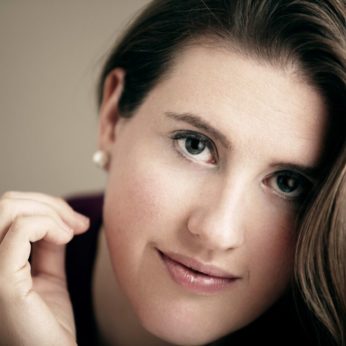Composer: Maurice Ravel (b. 1875 - d. 1937)
Performance date: 04/07/2015
Venue: Bantry Library
Composition Year: 1913
Duration: 00:11:55
Recording Engineer: Richard McCullough, RTÉ lyric fm
Instrumentation: 2vn, 2va, 2vc
Instrumentation Category:Large Mixed Ensemble
Instrumentation Other: S-solo, 2fl, 2cl, pf, 2vn, va, vc
Artists:
Katherine Dain -
[soprano]
Phillipe Bernold -
[flute]
Fiona Kelly -
[flute]
Romain Guyot -
[clarinet]
Mathias Kjøller -
[clarinet]
Anna Tilbrook -
[piano]
Vanbrugh Quartet (Gregory Ellis, Keith Pascoe [violins] Simon Aspell [viola] Christopher Marwood [cello]) -
[quartet]

Stéphane
Mallarmé was a leading French symbolist poet. He was an important influence on
such movements as Cubism, Dadaism and Surrealism. A number of composers set his
often puzzling verses to music including Debussy (e.g. L’après –midi d’un faune), Milhaud and Boulez. Ravel set this trio of poems in 1913 when he
was holidaying in Switzerland, courtesy of Diaghilev. He met Stravinsky there
and they got on very well. Stravinsky considered these Trois Poèmes were his favourite music by Ravel, who dedicated Soupir to Stravinsky while Placet futile is dedicated to French composer
Florent Schmitt. Erik Satie is honoured with the almost incomprehensible third Poème.
Ravel
scored the songs for voice and a chamber group consisting of two flutes, two
clarinets, string quartet and piano. All three are slow moving: Lent
– Très modéré – Lent, and the scoring is light and sparse
throughout. Words by and large are set
as one note per syllable, with occasional soaring vocal flourishes, which add
to the overall high timbre. The first
song opens with a glow of rapid violin arpeggios reflecting the gushing waters
of the white fountain in the text. Stravinsky made references to the second
song Placet futile in his A Soldier’s Tale, both describing
pastoral scenes; there are even echoes of Daphnis
et Chloé, written the previous year.
Originally
Ravel planned just two songs but later added the third, the strangest and most hermetic song, as Ravel himself
commented. Debussy described Ravel as
having the most refined musical ear ever; he had also decided to set the first
two of these poems without realising that Ravel held the rights to their use.
However Ravel happily allowed Debussy to proceed with his versions, commenting
wryly there would be a Debussy-Ravel contest
as a result. The first performance took place in Paris on January 14th,
1914, with Jane Bathori as soloist.
Copyright © 2025 West Cork Music. All rights reserved.
Designed and developed by Matrix Internet